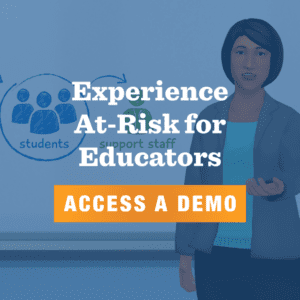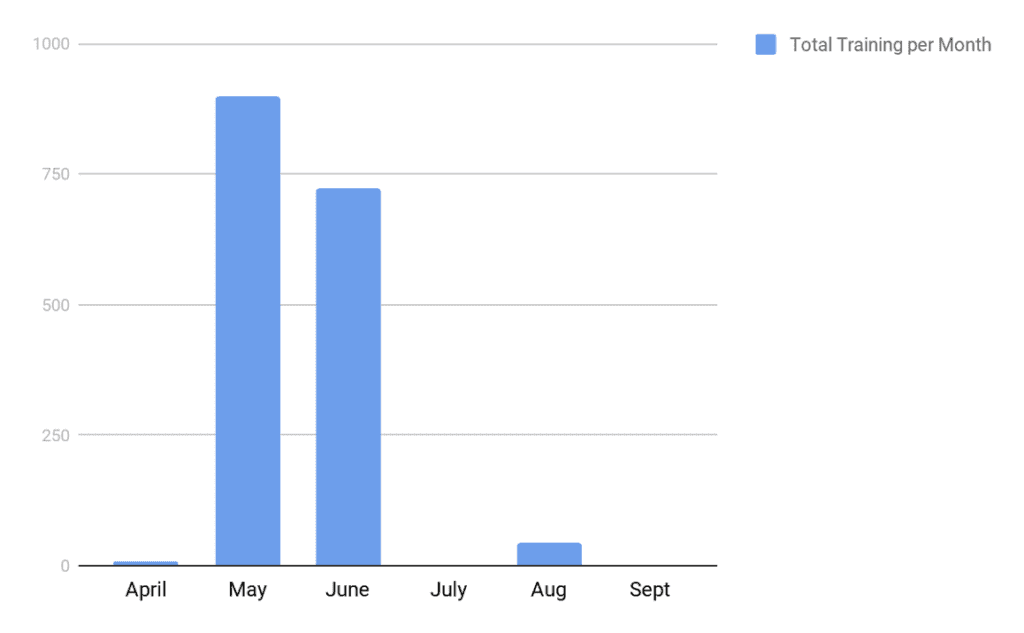Mental Health Training During a Pandemic
As the COVID-19 pandemic continues to impact student mental health, district leaders must apply a critical lens on how to raise awareness of mental health and suicide prevention. A key strategy is incorporating mental health training that is proven effective in linking at-risk students to support and shaping school climate.
In North Carolina, one school district quickly pivoted in order to be able to address student mental health from many angles. We sat down with Rikki Bullard, SCORE Project Coordinator for Public Schools of Robeson County, to discuss her district’s success in rolling out a suite of K-12 training focused on mental health, trauma-informed practices, and other topics to teachers and staff.
Addressing School Climate In Robeson County
 Robeson County is in the southeastern part of North Carolina and has one of the highest poverty rates in the state. The school district spans 36 schools, 1,460 employees, and 23,000 students.
Robeson County is in the southeastern part of North Carolina and has one of the highest poverty rates in the state. The school district spans 36 schools, 1,460 employees, and 23,000 students.
In the spring of 2020, a disproportionality report published by the North Carolina Department of Public Instruction found that Robeson County was suspending minority students at three times the rate of other students. In addition, one in five students in the district had mental health needs. A recent Robeson County community assessment indicated that individuals in the community were showing significant interest in mental health resources, second only to job opportunities.
With the COVID-19 pandemic and hurricane season looming, Robeson County district leaders knew they needed to take action to protect not only their at-risk students, but all students, teachers, and staff in the district to improve school climate.
A Vision to Train Every Employee
Luckily for the district, Robeson County had been awarded a $700,000 school safety grant from the North Carolina Department of Public Instruction that they could apply towards mental health training for staff. Specifically, Rikki had a vision to train the entire district community:
“We wanted mental health training that we’d be able to implement to all of our teachers. And not just our teachers, our bus drivers, and our cafeteria staff…anybody who comes in contact with our students, because we realized that it’s the whole team effort, it’s everybody involved who encounters that student.”
She was also looking for a solution that was simple to implement – training that would not cause teachers to be pulled out of the classroom to complete it, which would be mindful of their time and avoid getting a sub to fill in in their classroom. An online solution seemed like the most promising for allowing everyone from teachers to bus drivers to be able to complete the training.
But to be able to complete her vision of all educators and staff receiving training, she needed to secure funding from the school safety grant.
Moving Towards a Mental Health Training Solution
Rikki was interested in Kognito’s At-Risk for Educators suite as a solution for mental health training, given its availability online and its customized versions for educators at each grade level. Kognito simulations focus on building communication and empathy skills through interactive solutions that are relatable, interactive and engaging. As a licensed professional counselor herself, Rikki found the learning experience of At-Risk to be valuable:
“I was surprised at the material that was presented in Kognito because it was a lot of information that I had gained in graduate school that I thought it was very helpful for our teachers to know. To understand mental health behaviors and symptomatic behaviors, and what distress looks like in students.”
She decided to pursue applying the funding towards Kognito.
To move forward, Rikki presented the school climate and mental health data trends previously mentioned and got approval from the superintendent to apply for the grant funding. She then had to specify that the funds would be used towards Kognito. At this stage, Rikki worked together with the team at Kognito to fill in data and justify how the solution fit the need, in order to complete the grant.
The group effort was a success. Public Schools of Robeson County was able to secure the grant funding to provide At-Risk to all teachers and staff.
Getting Buy-In from Leadership
 Robeson County had a year to spend the grant money and roll out Kognito training. The next step was getting buy-in from school leadership.
Robeson County had a year to spend the grant money and roll out Kognito training. The next step was getting buy-in from school leadership.
Rikki’s approach was top-down, and she decided to talk to principals first. She was able to present the full story of the data collected by the state and county, trends they had seen in the district, and feedback from teachers and staff that they really wanted more professional development to address student mental health.
Following the presentation with the principals, Rikki worked to roll out Kognito simulations to all 36 Robeson County schools in May of 2020. Rikki was not sure what to expect in terms of how Kognito training would be received:
“We were a little nervous and skeptical about how many of our teachers would participate because with some of our older teachers, technology is a new world. So, we were quite surprised when we had about 800 or 900 of our staff immediately start going in on Kognito, and completing the programs. And what we found was they were coming back and saying, ‘I wish I’d had this when I first became a teacher.’ And some of them were saying, ‘Can I go ahead and take the other trainings? I really need something like this. I want to gather more information.'”
The warm reception to Kognito training happened to coincide with another event—the pandemic. School was remote when rollout began in May. So teachers and staff were home and looking for training that was online.
Luckily the district was able to respond accordingly. They decided to make At-Risk for Educators training mandatory for the district. In doing so, teacher assistants, cafeteria staff, bus drivers, and others were able to complete training as an activity while they were home and school was remote.
New Mental Health Training Legislation in Play
A month following Robeson’s initial rollout of Kognito, North Carolina passed Senate Bill 476 mandating training in mental health for school districts. To meet the requirements of this new bill, Rikki again worked with Kognito to select additional online training to provide staff. Additional simulations addressing bullying prevention, trauma-informed practices, supporting military children, LGBTQ cultural competency, and coping with loss at school would be a fit for the requirements of bill.
Once again, Rikki needed approval from district leadership. The assistant superintendent reviewed Kognito simulations and decided that it will mandate them for all staff to fulfill the bill requirements.
“A Few Things in One”
Now with At-Risk and eventually more school climate simulations required by the district, Public Schools of Robeson County has seen high engagement in completing training. Over 800 staff completed training in May with nearly another 700 in June.

Rikki says that this completion rate is really because of school staff taking the initiative to complete training.
“I think it speaks volumes to Kognito that your staff on their own are choosing to go in because the programs are so user-friendly. They’re also very informational.”
Rikki says she feels fortunate that the district chose Kognito even without the foresight of the pandemic and the senate bill:
“We have an online mental health program to allow our teachers to get the training that they need to help our students, who are going to be overwhelmed with mental health issues when they come back after going through a pandemic. But also here was our cafeteria staff and our bus drivers, who were seeking training that would be available online to them. And Kognito was the perfect solution for that. We got to do a few things in one.”
And what do teachers and staff think?
“The feedback that we’ve received from our teachers and our staff is that they are overly excited about the simulations and about what they learned. We had some of our administrative staff, who are higher level, surprised at how much they learned. And some said, ‘I was surprised I didn’t do better. I’m very surprised. I think I should have aced it.'”
Public Schools of Robeson County will be remote until at least January 2021. Rikki says she is glad that school staff have the tools to talk with students and deal with real-life situations they will face, especially when students return to school in-person.
Looking to fund mental health training?
If you’re looking for mental health resources to bring to your district, Rikki advises you to start by thinking outside the box and explore some of the following strategies:
- Look for grant opportunities in your local government
- Ask your staff, like your school safety officer, for ideas
- Build a relationship with your Managed Care Organization (MCO)
- Partner with community mental health agencies
Learn more about Robeson’s Implementation

Hear Rikki discuss Robeson County’s effort first-hand in the webinar: North Carolina and Virginia – Choosing Evidence-Based Solutions that Support Student Mental Health.
If you’re interested in trying a complimentary demo of a Kognito simulation, click here.
More information on Kognito’s K-12 suite of simulation offerings is here.
Explore more articles from the Kognito blog:
